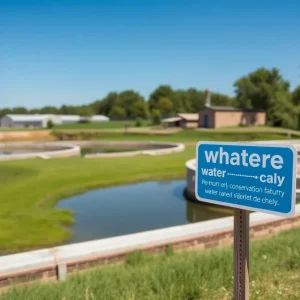News Summary
In Georgetown County, a council member pushes for increasing property tax revenue from farm and timber lands, currently yielding just under $700,000 annually. With a combined valuation over $800 million, the member aims to raise revenues to $6 million by addressing a longstanding tax credit that has significantly reduced taxable property values. Legislative responses have been lukewarm, but the member is determined to engage local leaders and seek a more sustainable solution for the community’s economic needs.
Georgetown County Council Member Fights for Greater Tax Revenue from Farm and Timber Lands
In the scenic Georgetown County, the conversation around property tax revenue from farm and timber lands is heating up. With farmland and timber holdings valued at over $800 million, it’s puzzling to many that the county brings in just under $700,000 annually from these properties. While that’s a decent chunk of change, one council member has set his sights much higher, aiming to bump that revenue up to a whopping $6 million.
The Background
The push for increased revenue stems from a state tax credit that has been on the books since the 1970s. Initially designed to encourage farming and timber production, this credit unfortunately slashed the taxable value of these properties by around 25%. Fast forward to today, and the table has turned; as a result of this credit, the taxable value has been reduced by nearly 90%.
The issue at hand has frustrated some local leaders, including the council member who has recognized significant losses in property tax revenue due to this long-standing credit. While he tried to rally fellow council members last summer, his efforts were met with silence. To spread awareness, he partnered with the S.C. Association of Counties to circulate his findings among officials across the state.
Legislative and Local Response
Despite these efforts, amending the tax credit has not been a priority for either the association or local legislators. Some state lawmakers, such as a local senator, suggest that altering the credit may not be practical, while others warn that raising taxes on farmers could be a tough sell in a county that values its agricultural roots.
In response, the council member is proposing a workshop to dig deeper into the implications of the tax credit while seeking input from the county administrator. His goal? To rally support from fellow leaders statewide to tackle this complex issue.
The Economic Impact
The stakes are high here. A representative from the Forestry Association has noted that reverting the tax credit back to its original levels could generate an additional $5.4 million in property tax revenue for the county. However, this change could also lead to significant tax burdens for farmers and timberland owners, thereby reducing their financial viability. The president of an association representing these landowners pointed out the potential negative impacts such an increase could have.
So, what’s the alternative? The council member believes there needs to be a phased approach to rolling back the tax credit. After all, the property assessor was the first to bring to light the issues spawned by this special land credit. It’s worth noting that although the tax credit was intended to be adjusted every three years based on agricultural productivity, no changes have been made since 1991.
The Bigger Picture
This legislative inaction has led many to call for broader reforms of South Carolina’s tax structure. Part of the concern stems from the potential for tax changes to trigger increased land development, leading to environmental repercussions that residents are keen to avoid. Those advocating for agricultural and forest lands worry that the focus on tax revenue could overshadow the vital role these lands play in the community.
The Upcoming Elections
With the council member also up for re-election this year, he faces the prospect of competition from candidates backed by the Farm Bureau. This dynamic adds another layer to the unfolding debate and indicates that debates over the tax credit and its implications are far from over.
As residents and leaders of Georgetown County continue to navigate this intricate landscape, one thing remains clear: managing the relationship between property taxation and land stewardship is an ongoing challenge with complex implications for the community.
Deeper Dive: News & Info About This Topic
HERE Resources
Georgetown ISD Introduces Propane-Powered School Buses
Georgetown Celebrates New State Highway 29 Bypass
Pflugerville Residents Reject Proposition A, Prioritize Public Safety in Recent Election
Taylor, Texas Celebrates the Return of the Williamson County Fair and Rodeo with Free Family Fun
Dock Collapse at Sapelo Island Cultural Celebration Claims Seven Lives
Big Investment in Williamson County: South Korean Company Soulbrain to Bring Jobs and Opportunities
Hutto’s Cottonwood Tract Development Faces Setbacks Due to Planned Overpass Concerns
Pflugerville City Council Reaches Settlement in Lawsuit with Emergency Service District
Additional Resources
- Coastal Observer: State Tax Credit Issue
- Wikipedia: Property Tax
- Oregon Capital Chronicle: Bipartisan Members of Congress
- Google Search: Georgetown County Tax Revenue
- US Chamber: Neil Bradley
- Google Scholar: Georgetown Property Tax Reform
- Spectrum News: Damon Thayer
- Encyclopedia Britannica: Farm and Timber Lands
- Georgetown Public Policy Review: William Haskell
- Google News: Farm and Timber Lands Tax Credit








